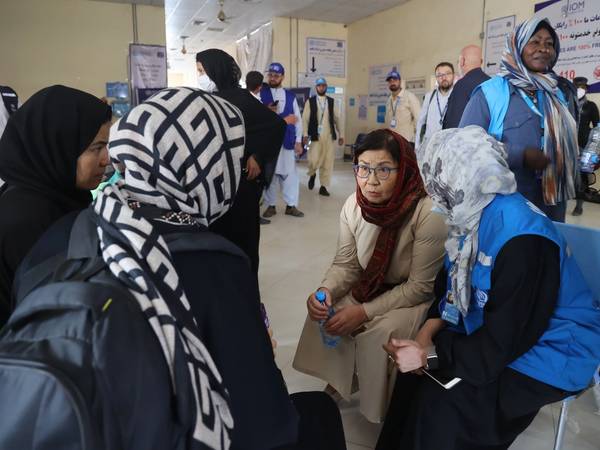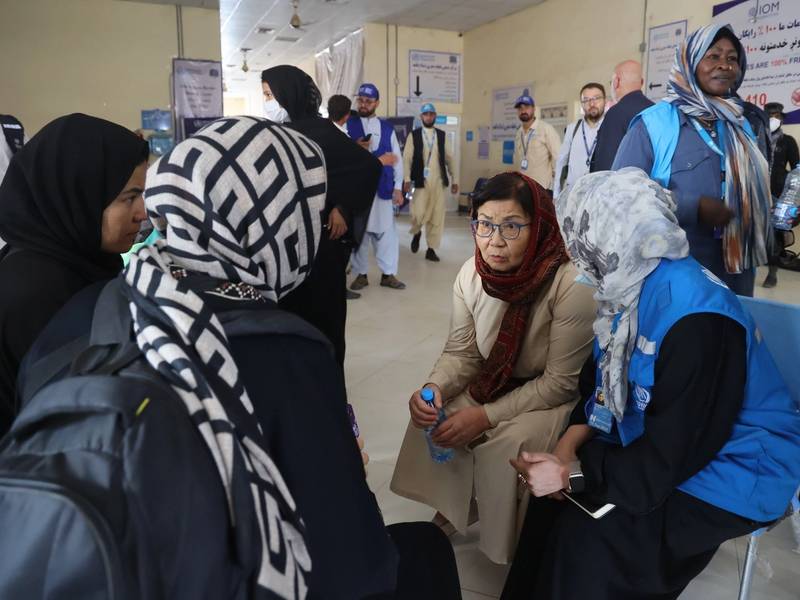Roza Otunbayeva, the UN Secretary-General’s Special Representative for Afghanistan, has warned of the severe consequences stemming from the mass return of Afghan migrants and called for immediate international action to support deported individuals.
Speaking during a visit to the Islam Qala border crossing, Otunbayeva said the situation unfolding at Afghanistan’s frontiers is a direct result of the international community’s failure to uphold its responsibilities.
Otunbayeva urged the launch of a regional dialogue with countries such as Iran, Pakistan and the Central Asian republics to prevent further uncoordinated deportations. She underscored the importance of adhering to the principle of “voluntary, dignified and safe” repatriation.
According to the United Nations, more than 1.3 million Afghans have returned since the start of 2024, placing overwhelming pressure on impoverished local communities. Women and children, among the most vulnerable, face limited access to essential services, alongside significant economic hardship.
Otunbayeva warned that humanitarian operations in Afghanistan are facing critical funding shortages, forcing aid agencies to make difficult decisions between offering food, shelter or safe return support.
She called on donor nations and international organisations to accept shared responsibility for the crisis. “What we are witnessing are the direct consequences of unmet global responsibilities,” she said. “We must act now—with resources, with coordination, and with resolve.”
Otunbayeva stressed that Afghanistan’s stability depends on the active engagement of the global community, warning that indifference is not an option. “The cost of inaction will be measured in lives lost and conflicts reignited,” she said.
Her remarks come as Iran resumes large-scale deportations of Afghan migrants, following a recent ceasefire with Israel. Border crossings in Afghanistan’s Herat and Nimruz provinces have seen a dramatic surge in returnees, intensifying humanitarian concerns.

